-
5 Built-In Storage Cabinets for Any Room in Your Home
Introduction
No matter how much storage space you have in your home, it seems like it’s never enough. If you’re in this predicament, the use of custom built-in cabinets may be a viable solution. They can be adapted to any space, can contain open or closed shelving, and can be matched to any home décor. In this article, we’ll discuss 5 different types of built-in storage cabinets and how they can increase the functionality of any room in the house.
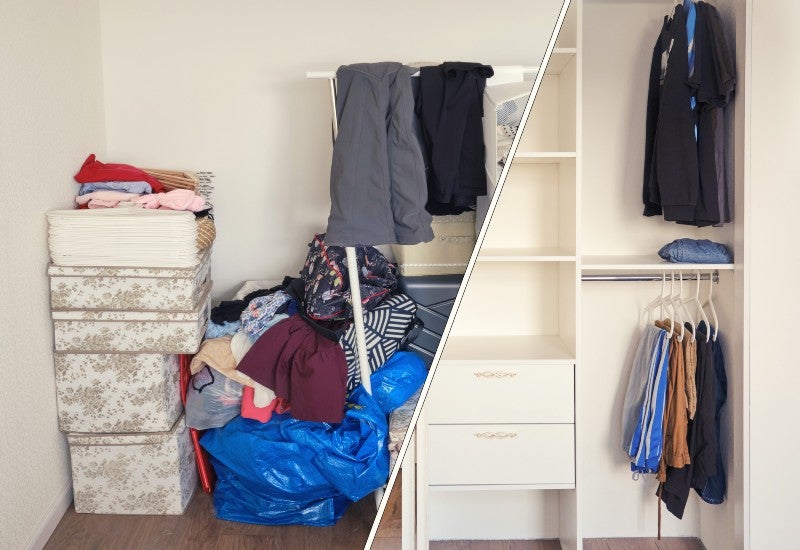
What Are Custom Built-In Cabinets?
Custom built-in storge cabinets are tailor-made furnishings that blend seamlessly into a home’s architecture. Unlike freestanding furniture, they are designed to fit specific spaces, maximizing storage and enhancing the aesthetics of a room. Whether it’s built-in wall storage for a living room or home storage cabinets for a kitchen, these unique storage solutions are crafted to meet the specific needs of you and your family.
The Benefits of Built-Ins
Built-in storage cabinets offer a myriad of advantages over traditional stand-alone furniture:
- Space Utilization – Built-ins can make the most any available space, fitting snugly into corners, alcoves, or under stairs.
- Aesthetic Appeal – Custom built-in solutions can be designed to match the existing décor and architecture of your home, creating a cohesive look.
- Increased Storage – Built-in shelves and cabinets can be customized to any height or width, maximizing storage capacities.
- Enhanced Property Value – Well-designed built-ins can significantly increase the value of a home, adding both functionality and elegance..
- Personalization – Options for materials, finishes, and styles allow homeowners to create storage that reflects their personality and lifestyle and fits in with their particular decorating taste.
- Durable and Long Lasting – Built-is are created from durable materials with the intention that they will last as long as the house itself.
5 Custom Built-In Ideas
Here are five different built-in storage cabinet options that can be integrated into various rooms in your home:
Built-In Wall Storage Cabinets for the Living Room
- Perfect for housing books, media equipment, or decorative items.
- Can be designed to frame fireplaces or windows for a cohesive look.
Custom Buil-In Storage Cabinets for the Kitchen
- Ideal for storing dishes, spices, and appliances.
- Can include features like pull-out pantries or integrated wine racks.
Custom Built-In Storage Cabinets for the Bedroom
- Maximize storage for clothes, shoes, and accessories.
- Can be incorporated into the headboard or under-bed storage.
Built-In Cabinets for the Home Office
- Designed for storing files, books, and office equipment
- Can be customized with a built-in desk or hidden compartments.
Built-In Storage Cabinets for the Bathroom
- Offers discreet storage for toiletries, towels, and cleaning supplies.
- Can be integrated into the vanity or positioned above the toilet for space efficiency.
What are My Other Options?
While custom-built storage cabinets provide an elegant solution, there are other options to consider:
- Freestanding Shelves and Cabinets – These offer flexibility but may not use space as efficiently as built-in cabinets.
- Modular Storage Solutions – This option provides customization with a mix-and-match approach.
- Wall Wall-mounted shelves – Good for smaller spaces, but may not offer the same capacity or aesthetic appeal as built-ins.
Conclusion
Custom built-in storage cabinets are more than just functional additions to your home; they’re an investment in style, organization, and efficient living. Whether it’s the sleek appeal of built-in wall storage cabinets or the personalized touch of home storage cabinets designed just for your needs, the possibilities are endless. From the living room to the bathroom, these innovative solutions provide unparalleled flexibility and elegance. With options that suit every taste and décor, built-in shelves and cabinets are the future of home organization.
If you’re ready to elevate your living space, Independence Storage can help to guide you every step of the way with ideas and suggestions.
Independence Storage has been providing the finest storage unit options to our community for over two decades. As self-storage professionals, we provide our clientele with the ability to store whatever they need to with ease and peace of mind. Focused on personal attention, professional service, and convenience, we offer all ground-level units, electronic key pad access, and no hidden fees or minimum stays. Our office hours are Monday through Saturday, but with easy access seven days a week. Customized billing, manger’s specials, and our friendly staff ensure your complete satisfaction. Whether you’re decluttering your home or securing your belongings, choose our spacious and clean facilities available 365 day a year.
For more information about our services or facilities, contact us via our website, stop by for a visit, or give us a call at 650-241-3042. We look forward to meeting you!
-
How to Completely Clean Out Your Storage Unit Step-By-Step
Why Clean Out a Storage Unit?
Cleaning out a self-storage unit may seem like a daunting task, but it’s a necessary one. Whether you’re moving, downsizing, or simply aiming to declutter, a storage unit cleanout can provide you with peace of mind, knowing that your belongings are organized and secure. Well-maintained storage units can keep your belongings safe and accessible, and knowing how to clean out a storage unit is essential to keeping things organized.
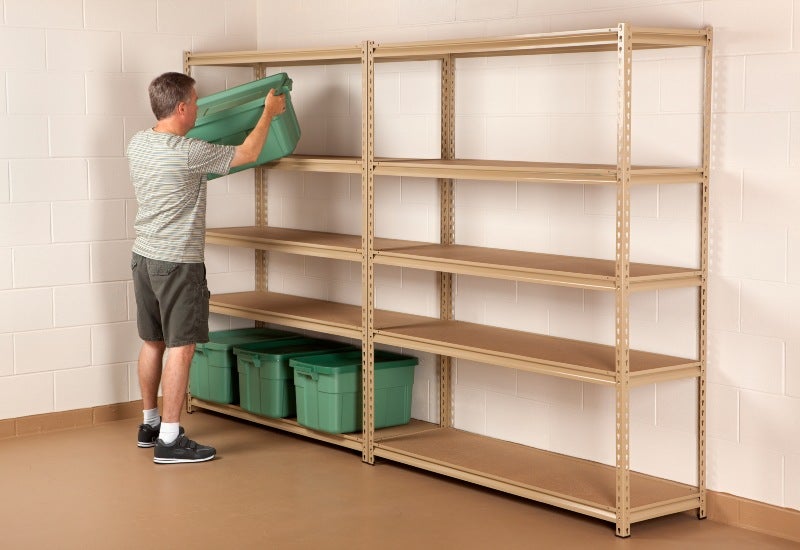
What Do I Need to Do to Declutter My Storage Unit?
To get started on the task of storage unit decluttering, you’ll need the following tools:
- Moving Boxes or Totes – These are needed to help with sorting and packing.
- Trash Bags – In most cases, you’ll find things you no longer need, so you can dispose of them in trash bags.
- Bubble Wrap or Packing Paper – Use these supplies to protect any of your more fragile items.
- Labels and Markers – Using large labels and bold markers can help you to identify items easily when needed.
- Packing Tape – Sealing all of the seams on your boxes with packing tape will help to prevent damage from moisture or insects.
How to Clean a Storage Unit Initially and Regularly
Here are some suggestions for how to clean and organize your storage unit:
- Empty the Unit – Removing everything from the unit facilitates a thorough cleaning. Take everything out and sort your belongings into three categories to keep them, sell them, or discard them.
- Deep Clean the Unit – Start by thoroughly dusting and sweeping the unit. Next, mop the floors and wipe down surfaces so that the unit is sparkling clean.
- Repack – This is a great time to repack some of your boxes or to freshen up the labeling on each one.
- Organize and Store Items – Make a plan for how you’re going to arrange your storage unit to make the best use of the space. Place everything back in the unit in an organized manner, keeping your things in labeled boxes or totes.
- Schedule Regular Maintenance – To keep your unit in the best condition, set a reminder and repeat this process at regular intervals.
Choosing a Clean Storage Unit
When selecting the best storage unit for your purposes, consider the following:
- Size – Storage units come in a variety of sizes. For the best result, choose a size that fits your specific needs without unnecessary space. This will save on the cost of the unit every month.
- Climate Controlled or Not? – If you wish to store items that are sensitive to extreme temperatures or humidity, choose a climate controlled unit. This will help to protect such items as wooden furniture, electronics, artwork, or collectibles.
- Security – Look for facilities that have robust security in place. This would include measures such as limited keypad access, security cameras, smoke, carbon monoxide, and fire alarms, a well as on-site security personnel.
- Location – If you anticipate frequent visits to your storage unit, opt for a facility that’s convenient to your home or business. If you don’t need to access your unit often, you may find less expensive options in more remote locations.
Conclusion
Cleaning out a storage unit is an essential task that can be made manageable with proper planning and the right tools. By following the steps in this article, you can organize, declutter, and maintain your unit with ease. From selecting the right unit size to scheduling regular maintenance, these tips ensure a smooth process. By emphasizing the importance of regular cleanups, strategic space utilization, and selecting climate controlled units if necessary, these practices help to safeguard your belongings.
What’s Next?
For personalized assistance, quality service, and secure facilities tailored to your specific needs and preferences, trust the storage experts here at Independence Storage. We have been providing the finest storage unit options to our community for over two decades. As self-storage professionals, we provide our clientele with the ability to store whatever they need to with ease and peace of mind.
Focused on personal attention, professional service, and convenience, we offer all ground-level units, electronic key pad access, and no hidden fees or minimum stays. Our office hours are Monday through Saturday, but with easy access seven days a week. Customized billing, manger’s specials, and our friendly staff ensure your complete satisfaction. Whether you’re decluttering your home or securing your belongings, choose our spacious and clean facilities available 365 day a year.
For more information about our services or facilities, contact us via our website, stop by for a visit, or give us a call at 650-241-3042. We look forward to meeting you!
““
-
Can You Use Storage Unit as Workplaces?
Using Self Storage as a Workplace?
Are you starting or expanding a small business? Traditional commercial property might be costly to buy or to lease, but running your business from a storage unit is an emerging innovative idea. Unconventional yet gaining traction, this article will delve into the feasibility, advantages, challenges, and practicalities of using storage units as a place of business.
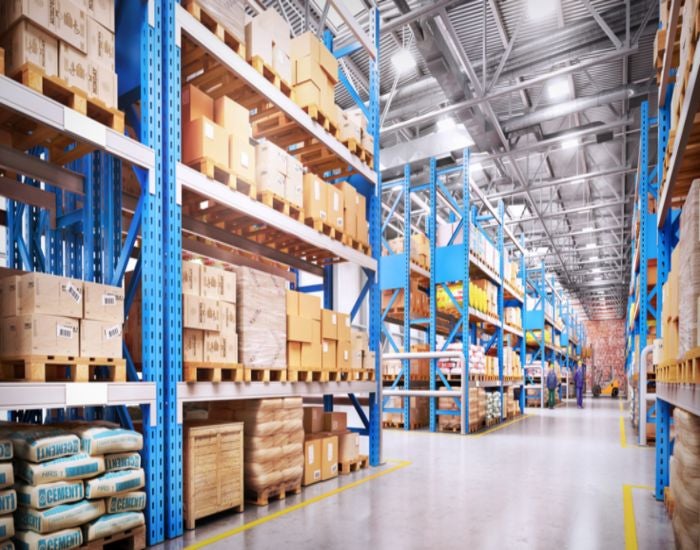
Is There Really a Need for the Idea of Using a Storage Unit as a Workplace?
With the rising cost of commercial spaces and the growing need for flexibility, storage units provide a unique solution. Here’s why you might need them:
- Storage for Inventory or Supplies – Self-storage is ideal for storing excess inventory, supplies, and stock. For example, if you’re launching a fashion line, a climate controlled unit can securely hold fabric and notions, providing ample space for your creations.
- Off-Season Equipment – Seasonal businesses, such as landscapers or summer camps, can benefit from using self-storage during their off seasons.
- Allows Room to Grow – Utilizing a self-storage unit frees up space in your primary location, allowing you to focus on expanding your business instead of storing excess supplies or documents.
Why Can/Can’t We Use a Storage Unit as a Workplace?
Using a storage unit as a workplace has several advantages and disadvantages:
Advantages:
- Cost Effective – Self storage units are more affordable that traditional office spaces, making them a budget-friendly option for new businesses
- Flexibility – With month-to-month rental options, self-storage units offer greater flexibility compared to long-term commercial leases.
- Privacy and Security – Storage units provide a level of privacy and security for your business assets. In many cases, security at a storage facility is much stronger than that of a typical office building.
- Room for Growth – As your business expands, you can easily upgrade to larger units.
Disadvantages:
- Legal Constraints – There may be zoning laws or lease agreement clauses that could prohibit using a storage unit as a workplace.
- Lack of Amenities – Storage units may come with limited access to restrooms or other typical office facilities.
- Cleaning Costs – Consider the question of how much it would cost to clean out a storage unit. This is a factor that might increase your expenses.
What Businesses Can You Run from a Storage Unit?
The use of a storage unit may suit specific types of businesses. Here are a few examples:
- Art Studios – An artist may use a storage unit as a space that will allow him to create pieces in a peaceful setting.
- E-Commerce Inventory – A self-storage unit is an ideal space for an e-commerce business. It can provide the storage for inventory, as well as a space for filling and shipping orders.
- Workshops – A craftsman or hobbyist can use the space to store raw materials or as a workshop.
- Document Storage – A self-storage unit can provide secured storage for businesses that need to retain documents.
Conclusion
While you can’t operate just any type of businesses from a storage unit, running an office from a business storage unit can be a viable alternative for certain types of businesses, especially those with limited space and budget constraints. It offers cost effectiveness, flexibility, privacy, and security advantages, but it’s essential to carefully assess the suitability of a storage unit for your specific business needs.
Before making any commitment, research local regulations, understand the facility’s rules or restrictions, consider potential challenges, and evaluate if a self-storage unit can truly support your business’s growth and success. By taking a few simple steps, you can turn a self-storage unit into an efficient workspace that will help your business run more smoothly.
What’s Next?
If you’re considering using a self-storage unit as a workspace for your business, you should check with the storage experts here at Independence Storage. We have been providing the finest storage unit options to our community for over two decades. As self-storage professionals, we provide our clientele with the ability to store whatever they need to with ease and peace of mind.
Focused on personal attention, professional service, and convenience, we offer all ground-level units, electronic key pad access, and no hidden fees or minimum stays. Our office hours are Monday through Saturday, but with easy access seven days a week. Customized billing, manger’s specials, and our friendly staff ensure your complete satisfaction. Whether you’re decluttering your home or securing your belongings, choose our spacious and clean facilities available 365 day a year.
For more information about our services or facilities, contact us via our website, stop by for a visit, or give us a call at 650-241-3042. We look forward to meeting you!
““
-
What Everyone Needs to Know About Self-Storage Contracts
Introduction
Self-storage contracts are essential documents that detail the terms and conditions of renting a storage unit. Whether you’re looking to declutter your home or store essential items, understanding the contract is key. The typical storage unit contract outlines payments, use of the unit, notifications, and landlord responsibilities. Some contracts may spell out terms in plain language, while others might be confusing. Brushing up on these agreements is vital before signing, as laws and terms may vary depending on the location.
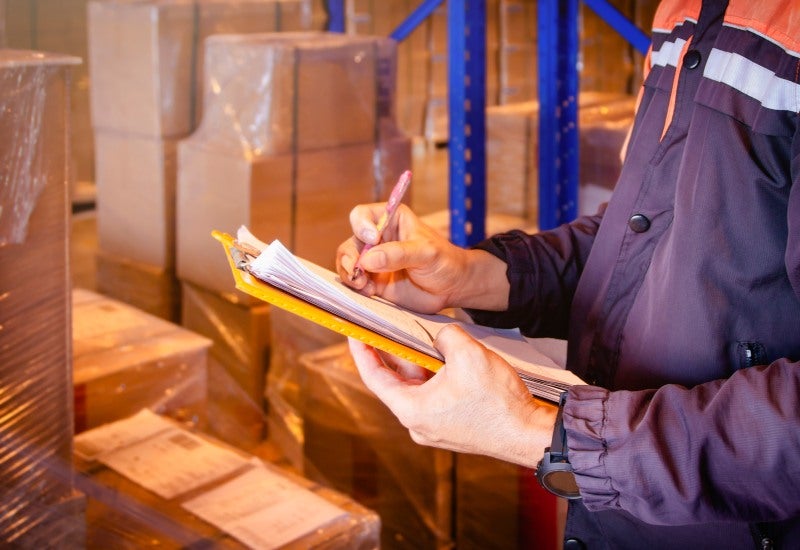
Need for Self-Storage Contracts
The need for these contracts arises from the necessity to have a clear understanding between the renter and the facility owner. The contracts protect both parties’ interests, clarifying how much the storage units rents are, the payment methods accepted, late payment procedures, and other potential fees such as lock-cut charges.
Why Should Someone Have a Self-Storage Unit Contract?
Understanding the unit contract ensures that you are aware of your rights and responsibilities, as well as those of the facility management, and can avoid any unpleasant surprises by including specifics on the following topics:
- Payments – The contract will outline your monthly payment details, including due dates, security deposits, late fees, and any additional charges that may come into play.
- Use of Unit – This section specifies rules for the unit, including what can and cannot be stored in the unit, any cleanliness requirements, and the consequences you may suffer for breaking the rules.
- Giving Notice – These details how and when you would need to give notice for changes, such as moving items out or changing your address or contact details.
- Landlord Responsibilities – This section will describe what the facility can and cannot do, such as entering your unit or locking you out under specific circumstances.
Why Is It Important?
When choosing a self-storage facility, you need to understand the basic clauses you’ll find in their contracts. These contracts typically contain some of these essential clauses:
- Lien on Personal Property – Your belongings can be held if you don’t pay your bill.
- Release of Liability Waiver – The self-storage facility is not responsible for any damages you may incur.
- Indemnification – Protection against claims resulting from your use of the facility.
- Breach of Contract – This outlines the consequences of violating contract terms.
- Exclusion of Warranties – Simply put, the facility offers no guarantees about the unit’s fitness for your specific purposes.
Self-Storage Contract Essentials
When you enter into an agreement to rent a self-storage unit, you’ll be presented with a contract for your signature. The contract will determine your rights and responsibilities, the facilities rights and obligations to you, and much more. The typical self-storage contract will contain the following:
- Contract Details
- Start Date
- Unit Number
- Unit Size
- Rental Amount
- Payment Methods
- Termination Guidelines
- Breach of Contract Terms
Understanding the legal terms used in the contract is critical, as it protects you from potential losses and legal issues and ensures that you’re getting the best deal possible.
Useful Questions to Ask Your Facility
Before signing, ask crucial question such as what can and can’t be stored in your unit, what happens if you can’t pay, access hours, insurance requirements, security measures in place, and whether the facility employees can enter your unit without your permission. By asking such questions, you can further clarify the terms and conditions, making sure you fully understand your commitment.
Conclusion
Understanding self-storage contracts is essential to a hassle-free experience with your unit. From understanding the payment terms to knowing the intricacies of what can and can’t be done with your unit, taking the time to comprehend the contract is in your best interest. For any question or concerns you may have when you need the services of a self-storage facility, don’t hesitate to contact the self-storage experts here at Independence Storage in Mountain View.
We have been providing the finest storage unit options to our community for over two decades. As self-storage professionals, we provide our clientele with the ability to store whatever they need to with ease and peace of mind. Focused on personal attention, professional service, and convenience, we offer all ground-level units, electronic key pad access, and no hidden fees or minimum stays. Our office hours are Monday through Saturday, but with easy access seven days a week. Customized billing, manger’s specials, and our friendly staff ensure your complete satisfaction. Whether you’re decluttering your home or securing your belongings, choose our spacious and clean facilities available 365 day a year.
For more information about our services or facilities, contact us via our website, stop by for a visit, or give us a call at 650-241-3042. We look forward to meeting you!
““
-
How to Pick the Right Size Self-Storage Unit
Introduction
Self-storage units have become an essential service for many individuals and businesses. Offering secure and convenient spaces for personal or business items, self-storage rental can solve your space-related issues. Knowing the average self-storage unit sizes, evaluating the cost, and understanding your specific needs can help you to select the ideal self-storage unit.
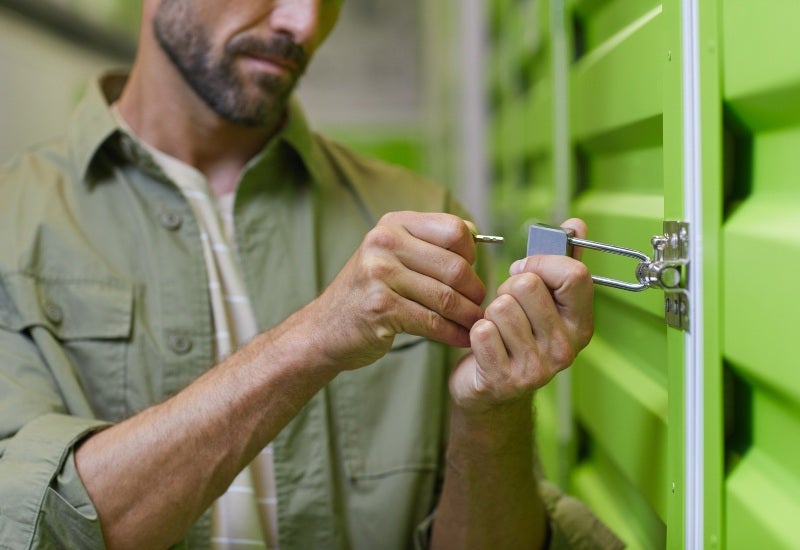
Why People Need Self-Storage?
- Personal Storage – Storage units are ideal for personal items that are regularly used. Examples include:
- Gardening Equipment – Tools and machinery only used seasonally.
- Holiday Decorations – Storable until the festive season arrives.
- Sports Gear and Seasonal Clothing – Ideal for off-season storage.
- Staging a Home for Sale – Removing extra furnishings to showcase space.
- Business Storage – Self-storage units can streamline businesses by providing space for:
- Important Documents – Keeping them secure and accessible.
- Surplus Office Furniture and Excess Inventory – Freeing up workspace.
- Manufacturing Materials – Helping businesses stay organized.
Factors in Choosing Storage Unit Cost
Storage prices can vary widely depending on several factors:
- Size – From extra small (10 sq. ft.) to extra-large (100 sq. ft.), choosing the right size impacts the cost.
- Location – Urban or popular locations usually come with higher prices.
- Climate Controlled Units – Needed for temperature or humidity sensitive items, climate controlled units are significantly more expensive.
- Security Measures – Advanced security measures may add to the cost.
- Insurance – You may need to purchase additional insurance coverages.
Evaluating the Cost Before Choosing Self-Storage
Selecting a unit involves understanding the costs and the size needed. Consider these factors:
- Duration of Storage – How long will you be needing the self-storage unit?
- Accessibility – Regular access may require additional space to be able to move around within the unit.
- Special Requirements – Storing larger items or business storage units for its inventory.
Make an Inventory
Making a complete inventory will help you determine the size unit you’ll need. It can also be useful in these ways:
- Content Tracking – Knowing what’s in every box or storage tub
- Insurance Purposes – In the event of a loss, an inventory will help you with your insurance claim.
Calculate the Size You’ll Need
Once you’re set on what you need to store, you can start to calculate what size unit you’ll need. Here’s a guide to the sizes typically offered and how much each size can hold.
- Extra Small – 10 sq. ft. – This one is about the size of a phone booth, and can hold a set of golf clubs, books, personal items, or 15 – 20 moving boxes.
- Small – 25 sq. ft.– This is about the same size as a garden shed. It can hold a dresser, a small mattress set, and a variety of small boxes. This is perfect for storing seasonal items like gardening tools, holiday decorations, or office supplies.
- Medium – 50 sq. ft. – Picture a small car. This unit can accommodate the contents of a medium sized bedroom, or about 100 moving boxes.
- Large – 75 sq ft. – This unit is the size of a mid-sized car. If you need to store the entire contents of a small apartment, this one should do nicely.
- Extra Large – 100 sq. ft. – About the size of a large car or pickup truck, this unit is large enough to store the contents of 3 bedrooms. It’s also great for items like televisions, pianos, couches, or tables
If you have trouble visualizing how big these units are, visit a storage facility and see for yourself. Another idea is to place masking tape on the floor of a spare room to create an outline of the unit you’re considering. Then place your things inside the outline you’ve created to see if they fit.
Reasons to Go Bigger
- Uncertain about Size – If you’re not sure about the right sized unit, it’s better to choose a bigger one than you think you need.
- Frequent Access – If you’re planning to frequently access items in your storage unit, a bigger size will give you some empty floor space to move around.
- Negotiating Prices – You may be able to negotiate a better price on a bigger unit than the price for one of the smaller units.
Conclusion
Choosing the right sized storage unit requires understanding the capacities of the different units and determining exactly how you’re going to use it. If you’re searching for self-storage units with fair prices and a variety of options, talk to the experts here at Independence Storage in Mountain View. We have been providing the finest storage unit options to our community for over two decades. As self-storage professionals, we provide our clientele with the ability to store whatever they need to with ease and peace of mind. Focused on personal attention, professional service, and convenience, we offer all ground-level units, electronic key pad access, and no hidden fees or minimum stays. Our office hours are Monday through Saturday, but with easy access seven days a week. Customized billing, manger’s specials, and our friendly staff ensure your complete satisfaction. Whether you’re decluttering your home or securing your belongings, choose our spacious and clean facilities available 365 day a year.
For more information about our services or facilities, contact us via our website, stop by for a visit, or give us a call at 650-241-3042. We look forward to meeting you!
-
How Much Does a Storage Unit Cost?
Introduction
Choosing the right storage unit is more than just finding a space to stash your belongings. It’s about understanding the myriad factors that affect the cost, convenience, and suitability of the storage unit to your specific needs. Whether you’re relocating, decluttering, or need space for your business inventory, the choices can be overwhelming. Urban or rural location, the size of the unit, climate-controlled or not, seasonal pricing fluctuations, discounts, insurance, administrative fees, and even the type of locks or moving trucks-all of these consideration come into play.
In this article, we’ll delve into each of these factors, explaining their impact on the overall cost and what you’ll need to consider in order to make an informed decision. By understanding these factors, you’ll be better equipped to choose the storage solution that fits your requirements and budget and provides the best protection for your valuable items.
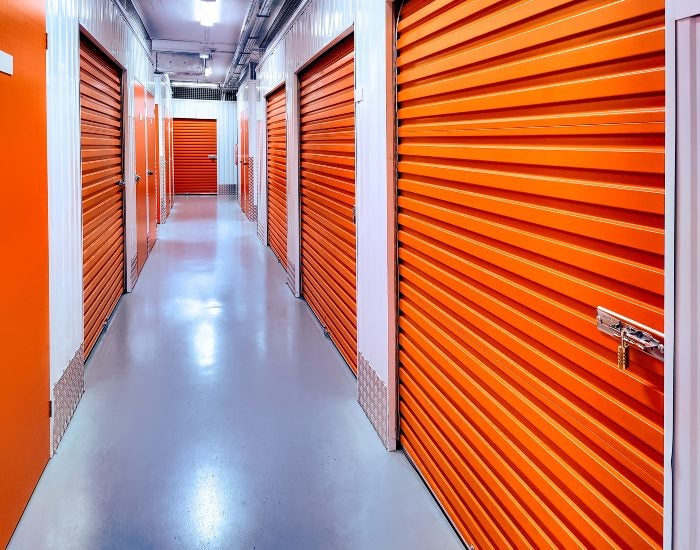
Primary Factors Affecting Storage Unit Pricing:
- Location
Location plays a critical role in the cost of a storage unit. In urban areas, you’ll find many storage facilities in close proximity, and they may use low price in their competition with each other. In rural locations, you might only find one or two storage facilities. Consider the following:
- Frequent Access – If you plan to visit the unit often, selecting a location close to your home or business will save you time, money, and energy. It may cost more, but the convenience could outweigh the expense.
- Infrequent Access – If you’re unloading and not planning to return until moving out, widening your search to find a less expensive location might be wise. Consider the parts of the building where the economy units are housed to save on the expense.
- Size: Finding the Right Fit
The size of the unit will affect the prices, so it’s important to select the right fit for your needs. You can do this in a couple of ways:
- Helpful Guides – Utilize online size guides provided by storage companies or consult with your moving company.
- In-Person Visit – Touring the space ensures you get the perfect size and making an appointment to see the available units is recommended.
- Climate Control: Protection for Sensitive Items
Climate control is essential of items sensitive to temperature or humidity swings, such as wood furniture, electronics, or artwork. As you can imagine, climate controlled units will cost more, sometimes as much as 30%-50% more. However, these units offer better cleanliness and pest control due to limited outdoor access.
- Seasonal Trends
Storage prices fluctuate with the real estate market. Their high season is typically from April to September, similar to swings in real estate and moving services. The low season, again similar to real estate sales, is from October to March.
- Special Discounts, Promotions and Rate Increases
Bargain deals may be attractive, but they might hide future rate increases or added fees. To deal with this, ask a lot of questions about rates, expected increases, and when they might come into play. Be skeptical of extreme discounts, as they may mean that you’ll pay much more later on.
- Insurance
Consider the storage facility’s policy regarding insurance. If your homeowner’s or renter’s insurance include coverage for storage, they may accept that. If not, they may offer a separate policy or require you to purchase a policy on your own.
- Administrative Fees, Deposits, and Taxes
Be aware of hidden fees and taxes, as they will add to your start-up costs. Ask for complete details for all fees and be clear on any and all charges you may incur.
- Moving Trucks and Locks
Consider the added cost of special locks, moving trucks, or other specific requirements. Note that some facilities will lend you a truck to move your goods in or out.
Conclusion
Choosing the right storage unit requires thorough research and consideration of various aspects. From location to size, climate control, seasonal trends, special offers, insurance, administrative fees, and additional locks or trucks, each factor influences the final cost. Being well-informed and taking the time to explore all of your options will ensure that you find the best storage solutions, tailored to our needs, preferences, and budget.
Independence Storage in Mountain View, CA, has been providing the finest storage unit options to our community for over two decades. As self-storage professionals we provide our clientele with the ability to store whatever they need to with ease and peace of mind. Focused on personal attention, professional service, and convenience, we offer all ground-level units, electronic key pad access, and no hidden fees or minimum stays. Our office hours are Monday through Saturday, but with easy access seven days a week. Customized billing, manger’s specials, and our friendly staff ensure your complete satisfaction. Whether you’re decluttering your home or securing your belongings, choose our spacious and clean facilities available 365 day a year.
For more information about our services or facilities, contact us via our website, stop by for a visit, or give us a call at 650-241-3042. We look forward to meeting you!
RECENT POSTS
categories
- Uncategorized
- Customer Reviews
- Infographic
- Convenient Storage
- Secure Storage
- Independence Storage
- Maximizing Storage Space
- Packing Tips
- Storage Unit
- Taping Boxes
- College Student Storage
- Packing
- Boat storage
- Self Storage
- Fragile Items
- Organize your space
- Organized Packing
- Purging
- storage facility
- self-storage unit
- Storage Rentals
- Professional storage services
- storage services
- Self Storage Insurance
- Holiday Party
- Studio Apartment
- Dorm Room
